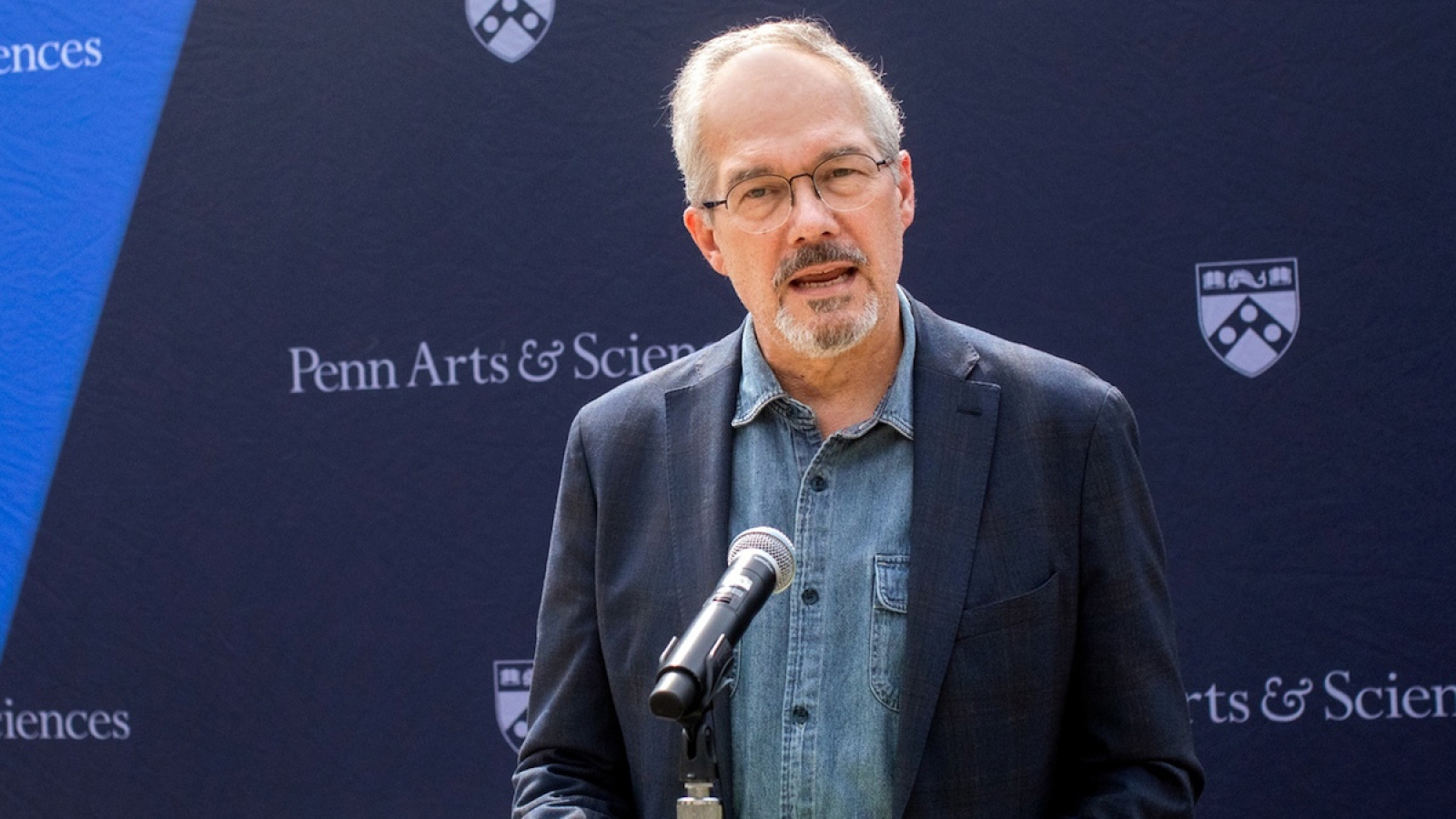Welcome to OMNIA Q&A, where we speak with leading experts about the latest issues and research. With the Republican and Democratic National Conventions now over, we sat down with Associate Professor of Political Science Matthew Levendusky to discuss the standout moments and the lasting effects.
Do political conventions matter? Is there a lasting impact in the polls?
For a lot of people this is really the first time that they're sort of tuning in to some detail. They're starting to see the candidates and their ideas, and starting to form their impressions. I think probably in the end people won't remember so much the booing of the Bernie Sanders people or the booing of Ted Cruz or all these sort of little things that happened in a given day. They will sort of remember the images that overall the parties are trying to present.
Donald Trump's nomination has caused some division in the Republican Party—for instance, Ted Cruz not vocally endorsing Trump. Does this affect voters?
The Cruz thing to me is fascinating. So he drew a lot of boos and some criticism from Republicans. Ted Cruz is nothing if not a canny politician. I suspect that Ted Cruz is thinking something along the following lines: Donald Trump is likely to lose in November if we look at the current polling, and so he's going to be well positioned to say and you know the aftermath of the 2016 election if in fact Trump does lose to say, ha, I told you. The problem is that you ran this person who is not a true conservative and you veered away from conservative principles. I'm the one who told you to stick to conservative principles; I'm the person who should be the party standard bearer in 2020. I think Cruz is really kind of looking down the tree, and he's going to try to set himself up for a future presidential run. I think that's what that speech was about. He didn't want someone in 2020 or 2024 to be able to come back to him and say, oh, but you endorsed Donald Trump in 2016, because he'll now be able to say no, I disavowed that part of the movement. I'm in fact the true ideological conservative who's never wavered from his principles.
The DNC got off to a shaky start when Bernie Sanders' supporters voiced their discontent. What is the basis for this divide?
If you look at the elite Democratic Party, the people who are in the DNC, the other elected officials, they were basically always a hundred percent behind Hillary Clinton. Senator Sanders is not really a Democrat even today—he's an independent who caucuses with the Democrats, so he is someone who is not particularly well-loved among many elite Democrats and among some rank and file Democrats as well. The types of people who were most angered by it were those sort of Sanders supporters who were always outside of the party. They might have come from the Occupy movement or from other types of sort of left-wing groups, Code Pink or environmental activists, that they didn't really care that they were making the party look bad, because they never really saw themselves as having joined the party. They were about the kind of message that Bernie Sanders had rather than per se electing a Democrat, which is going to be quite different from many of the other delegates.
Were both parties able to present a unique platform that contrasted with that of their opponent?
The RNC, what we really saw in a way was a negative case. It was basically "lock her up": here's why Hillary Clinton is bad. Very few people made a positive case for Donald Trump. There were some vague allusions to the fact that he's a business man, he's been very successful, he knows how to do these things, but it's sort of short on specific policy proposals or reasons to vote for him. The reason was basically Hillary Clinton is corrupt.
The Democrats certainly did some very forceful and vociferous attacks on Trump. I actually thought one of the most effective attacks against Trump was from the parents of the slain Muslim soldier [Army Capt. Humayun Khan]. I thought that was a particularly emotionally powerful speech in the way they were able to highlight one of the themes of the Clinton campaign, which is a sort of stronger together theme, that we do better when we come together. To me as a political scientist one of the more interesting aspects was that we saw the Democratic Party trying to take ownership of foreign policy and national security. I thought one of the most effective lines in Secretary Clinton's acceptance speech was when she turned to foreign policy and she said Mr. Trump claims that he knows more about ISIS than the generals and she just paused very effectively and said, "No, Donald, you don't." That drew huge applause from the crowd and she went on to talk about her extensive foreign policy experience, especially her time as Secretary of State. I think that sets up a pretty effective contrast for her going into the general election.


